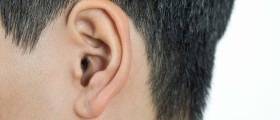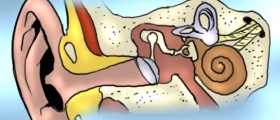
Vertigo
Vertigo is not a medical condition per se but a symptom of a variety of medical conditions. There are two types of vertigo. In objective vertigo a person feels that all the things from his/her surrounding are moving. In subjective vertigo a person complains about the feeling that he/she is moving. This symptom is not isolated and is most commonly accompanied by nausea and vomiting.
Causes of Vertigo
Certain diseases that affect brain or the inner ear can lead to vertigo.
People are often affected by so called benign paroxysmal positional vertigo. It features with specific sensations which occur after the head has been moving in certain direction. This type of vertigo is also caused by unexpected movements of the head. Benign paroxysmal positional vertigo is not a medical condition and it does not require any treatment at all.
The inflammation of the inner ear can be one more cause of vertigo. This is more serious medical condition and it features with rapid development of vertigo. Additional symptom is hearing loss. Inflammation of the inner ear is in majority of cases caused by viruses.
Patients who are suffering from Meniere's disease complain about occasional vertigo, tinnitus and hearing loss. In these patients vertigo occurs all of a sudden and the hearing loss is variable. The symptoms of Meniere's disease come and go.
Certain tumors can cause vertigo. Acoustic neuroma is only one of them. Apart from vertigo a patient with acoustic neuroma also complains about problems with hearing.
Blood accumulation in cerebellum can cause vertigo. In these patients, apart from headaches and difficulties with walking vertigo occurs. The patient is also unable to look toward the affected side. Even some other head and neck trauma can cause reversible vertigo.
In advanced stages of multiple sclerosis the patient may experience vertigo.
And finally, people who suffer from migraines can occasionally experience vertigo during or after the attacks.
Treatment of Vertigo
Basically the diagnosis defines the treatment that is going to be applied. The medications can be in a form of pills or tablets, given intravenously or in a form of skin patches.
Apart from the medications that reduce the intensity of vertigo the initial cause has to be eradicated. If the cause is bacterial infection of the inner ear a patient is prescribed antibiotics. Patients who are suffering from Meniere's disease apart from medications change their dietary regimes and reduce the intake of salt.
There are a couple of maneuvers which may be helpful for people suffering from vertigo. They include vestibular rehabilitation exercises and particle repositioning maneuver.

















Your thoughts on this
Loading...